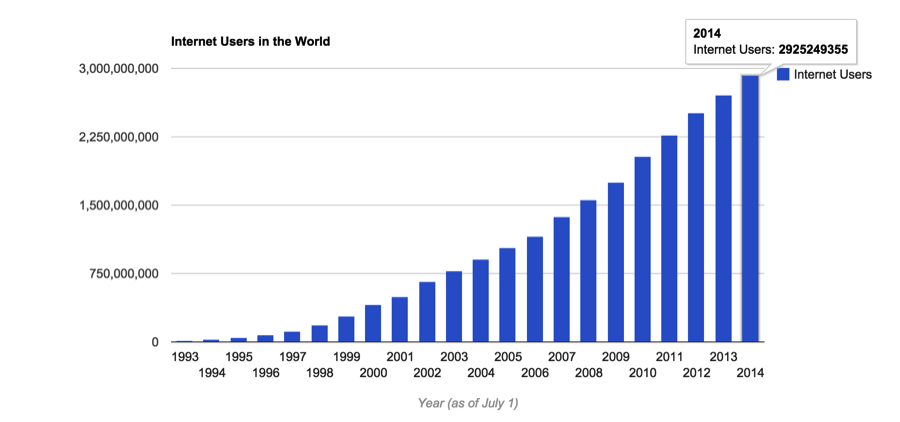April 6, 2015 – I’m currently reading Peter Diamandis and Steven Kotler‘s book, Bold: How to Go Big, Create Wealth, and Impact the World. It is a sequel to Abundance which I reviewed and posted a blog back in August, 2012. I’ll be writing about Bold in the next few days but today want to share with you a vision that Peter Diamandis has forwarded to me and others who receive his very interesting prognostications about the future.
It is about the “rising billions.” In Diamandis’ words, “three to five billion new consumers, who have never purchased anything, never uploaded anything, and never invented and sold anything, are about to come online and provide a mega-surge to the global economy.”
He goes on to state, “The Rising Billions are not coming online like we did 20 years ago with a 9600 modem on AOL. They’re coming online with a 1 Mbps connection and access to the world’s information on Google, cloud 3D printing, Amazon Web Services, artificial intelligence with Watson, crowdfunding, crowdsourcing, and more.”
Just five years ago there were 1.8 billion (see graph below) on this planet connected to the Internet. Today there are a billion more. But by 2020 almost all of humanity will be going online.
How will this all unfold? Through the auspices of a number of companies with which you are all too familiar. They include:
- Facebook with its plan to use unmanned solar-powered aircraft, code named Aquila, to beam Internet access down to Earth. The goal to connect the most remote communities that lack Internet infrastructure.
- SpaceX which recently opened a Seattle, Washington office where it, along with partners Google and Fidelity, is in the planning phase to develop and launch as many as 700 small satellites to provide global Internet coverage.
- Google, whose Project Loon, intends to launch thousands of smart balloons into the stratosphere where they will connect us all and fill in should disaster strike to ground-based Internet infrastructure including mobile phone networks.
- Virgin Group and Qualcomm, who have formed OneWeb with the goal to deploy 650 satellites each operating 1,200 kilometers above the Earth delivering 8 gigabits per second throughput for home Internet and mobile phone networks.
What are the implications of 7 billion plus connected to the Internet? Diamandis describes it as representing “tens of trillions of dollars flowing into the global economy” He predicts this infusion of new minds and bodies will “create an innovation explosion, and drive a new wave of entrepreneurship and global competition.”
Diamandis isn’t alone in making these type of far-reaching predictions. Ericsson, the telecommunications giant, and the world’s largest supplier of mobile networks, is predicting smartphone and wireless connectivity for 5.9 billion of us on the planet within the next five years.
The combination of global connectivity through an Internet delivered everywhere, and the mass availability of smartphones at ever cheaper prices, the platform of choice today and in the future for the Developing World, are seen as disruptive economic accelerators, making human knowledge ubiquitous. In the May 2014 article appearing in Forbes, where Ericsson is quoted with its prediction, Tim Worstall states, “That peasant farmer trying to manage his acre of maize using nothing but a hoe and a machete: sure, he’s not going to be the world’s greatest user of Facebook…..but he will benefit massively from information about weather, market prices and better farming practices.”
When collective wisdom goes global, (see image below of an Indonesian woman, photo courtesy of Jason Lee of Reuters) hold your breath, because the world is going to undergo change as never before. Diamandis predicts it. So do many other futurists with whom I speak and correspond. Aah…we live in interesting times.















